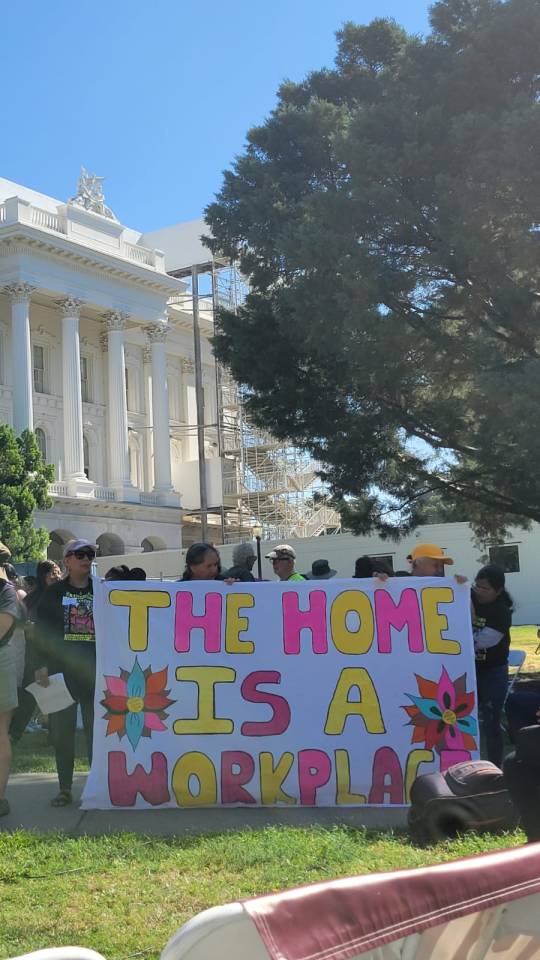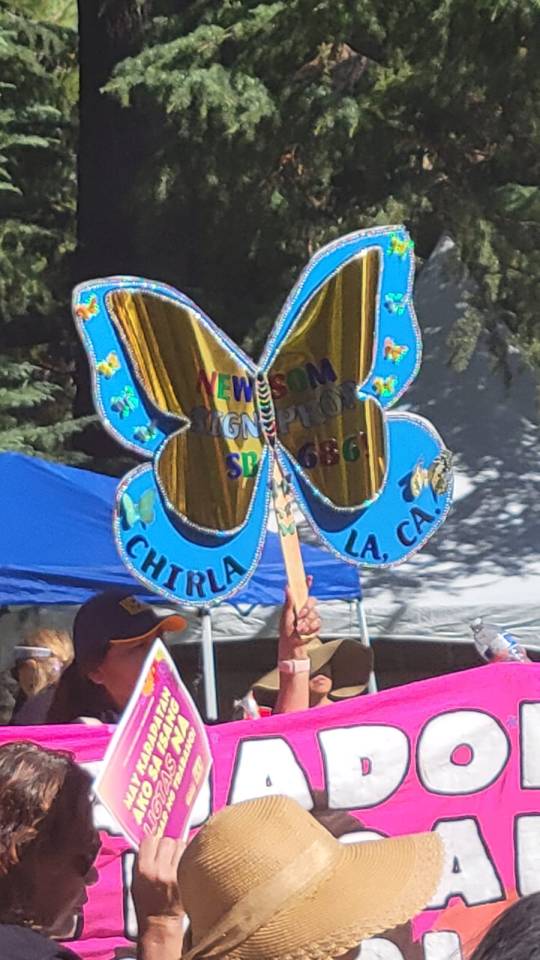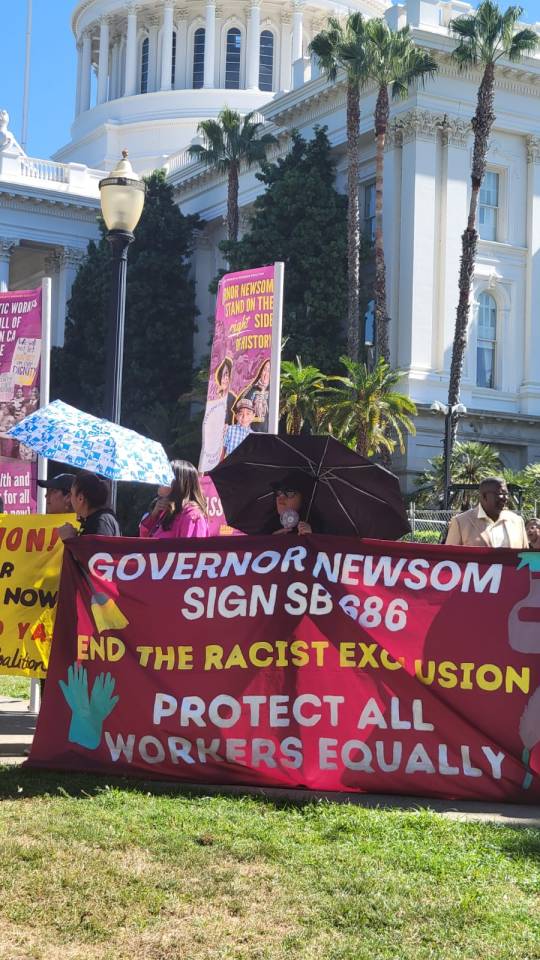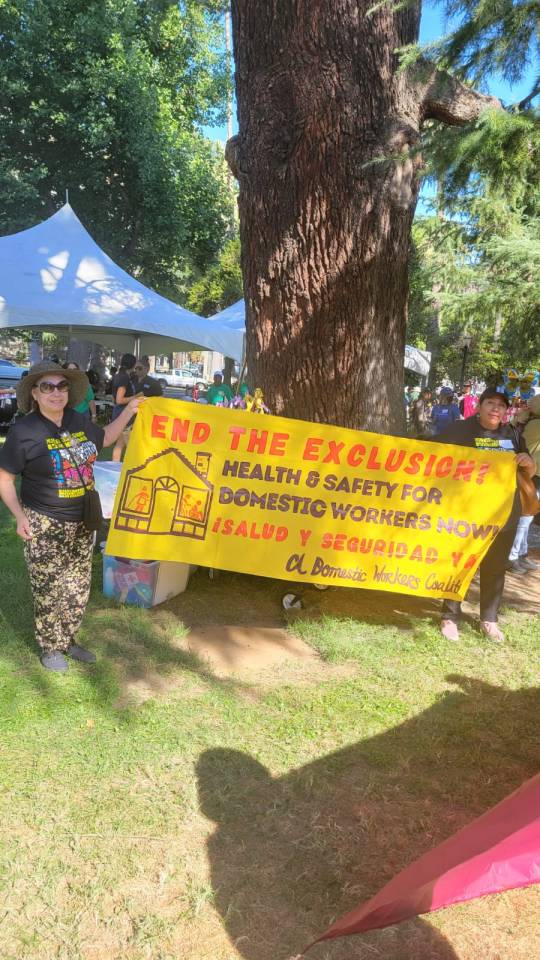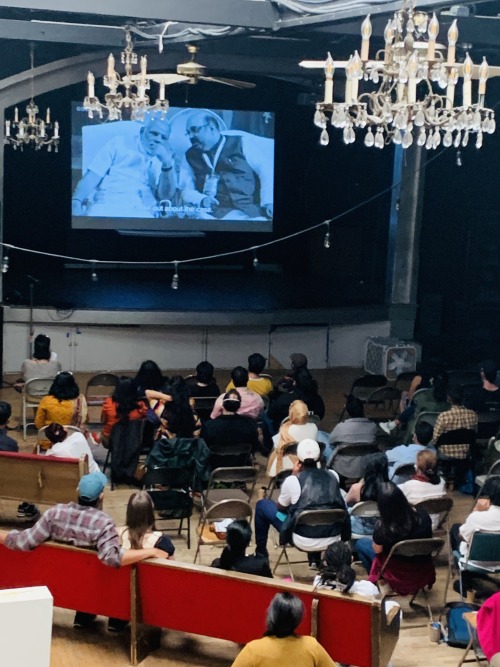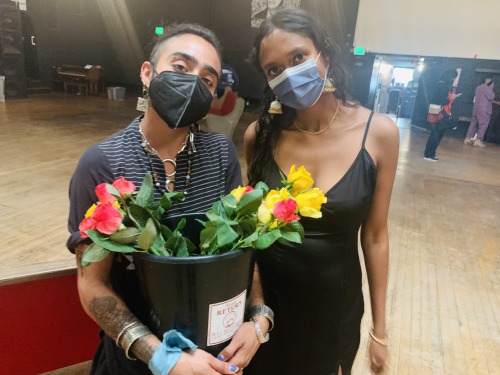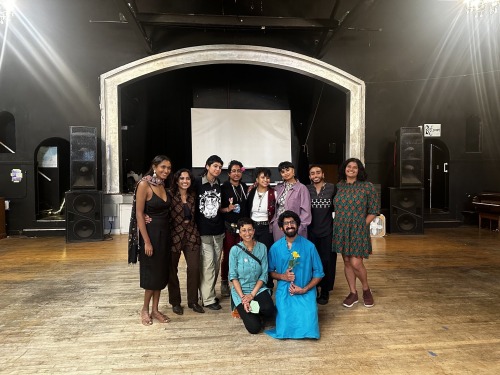Justice for Bhopal Art Action
On Sunday, December 1, volunteers with ASATA, Hindus for Human rights, and other local groups in solidarity painted a street mural in front of the Indian Consulate in San Francisco to call for justice on the 40th anniversary of the industrial disaster in Bhopal, India.
Organizers like Farhana Sobhan from ASATA and Vivek Kembaiyan from HFHR brought together a coalition of organizations, activists, and artists to demonstrate solidarity with survivors using art with the support of longtime street muralist and organizer, David Solnit. The mural and accompanying banner was designed by artist Kamardip Singh by adapting and combining previous campaign art demanding justice for the survivors of the Bhopal disaster. The mural is anchored by two women who are survivors and movement leaders in Bhopal, in front of the still unpremeditated chemical plant and billowing clouds of lethal gas. This image was made by artist Alizarin Menninga-Fong, in collaboration with movement leaders in Bhopal, to serve as a logo commemorating the 40th anniversary. The 40th logo was also worn as screen printed patches by participants at the event.
On December 3, 1984, a Union Carbide factory in Bhopal leaked deadly poison into the community, killing thousands and leading to long-lasting damage that continues today. Our San Francisco action amplified the demands of the International Campaign for Justice in Bhopal, including for the American company Dow Chemical, of which Union Carbide is now a subsidiary, to pay for the death and destruction they wrought, and for the central and state governments of India and Madhya Pradesh to hold the perpetrators accountable and provide for the health and safety of the people of Bhopal (which they have totally failed to do).
It was a beautiful day, in which we painted, listened to the music of artists from Bhopal, and tied the destruction in Bhopal to the ways companies like Dow Chemical are killing Americans as well. We are grateful to artivists Esha, Priya, Sangeeta, Hafsa, Sabrina, Fernando for helping to execute the vision of the mural. Learn more about Bhopal at bhopal.net.
Photos by Nicholas Lea Bruno










